Now you can build your own computer using the same chassis and cooling technology that System76 uses in their popular Thelio line of desktops.
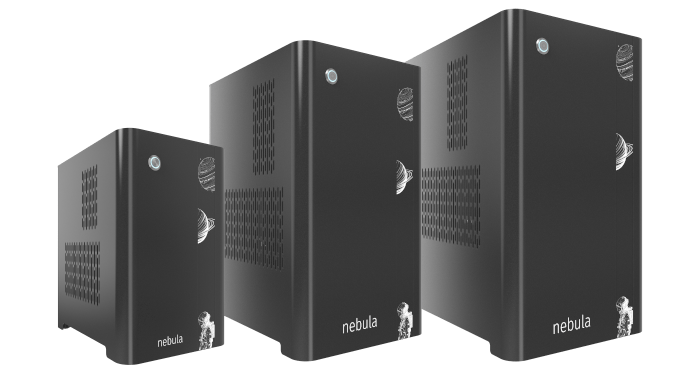
System76, the Colorado-based pre-installed Linux computer company, continues to expand its offerings beyond ready-to-use laptops, desktops, and servers. On Thursday, the company announced that for the do-it-yourselfer it’s released Nebula, a line of PC cases (or chassis) for those who like to make their own computers from scratch.
Although the company continues to introduce new computers at a rapid pace, during the last couple of years the company has also been releasing related products, which runs the gamut from software to hardware.
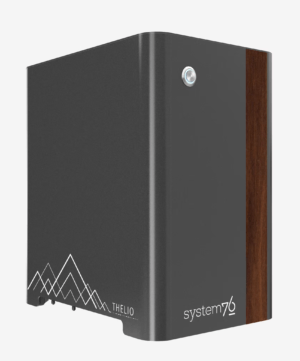
On the software side, the company develops it’s own operating system, Pop!_OS, a Ubuntu-based Linux distribution that’s not only the default installation on the computers it ships, but one that’s become popular among everyday Linux users outside the System76 ecosphere. In addition, the company is hard at work developing Cosmic, a new made-from-scratch desktop environment for its distro, to replace the modified version of Gnome which is the current default.
On the hardware side, for a couple of years the company has been offering a line of mechanical keyboards, called Launch, that are manufactured at its Colorado facility.
The new line of chassis offered this week are a natural addition, since they’re based on the cases the company uses for their popular Thelio line of desktop computers. System76 is betting that they’ll quickly gain traction, since they include Thelio’s advanced thermal technology for keeping equipment cool.
“What makes Thelio special is that it is one of the few advanced computers designed and manufactured with the purpose of drawing out as much sustained performance from its components as thermally possible,” the company said. “Now, all the thought, testing, and fine-tuned engineering that went into Thelio is making its way to PC builders in the form of the custom case, Nebula.”
You might be excused for thinking that this new computer case is designed primarily for enterprise workstations, which has become the norm for anything targeting open-source these days. While the company isn’t likely to turn down any enterprise purchases, its announcement indicates that the cases are designed primarily with everyday users and do-it-yourselfers in mind.
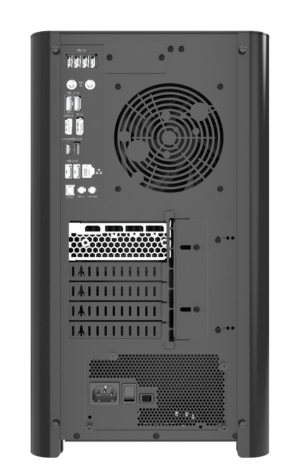
“System76’s open-hardware PC case is designed for builders to learn from, customize, and elevate their skills,” the company said. “Its space-optimized internals include a CPU exhaust duct for effective airflow, as well as a drive bay for 2.5” drives. An extra cool-air intake vent has also been added for better performance under load.”
Note that the company is calling this new line of cases “open-hardware.” That’s because System76 stands firmly on the side of open-source, whether that be software, hardware, or in this instance, chassis design.
The cases are available in three sizes, that correspond with three of the four Thelio models. The design similarity means that users can change the look of their home-built machines by purchasing the same swappable wood, etched, and powder-coated aluminum accents that are available for Thelio on System76’s website.
Thermal Performance
As the owner of two System76 machines, including the Thelio desktop I’m using to write this article, I can attest to the fact that System76’s thermal engineering is definitely one of the secret sauces behind the company’s success, which why it’s important that these cases offer DIY builders the opportunity to deploy the company’s top-of-the-line cooling prowess in their projects on a deep level.
In addition to the passive thermal technology that’s built into the chassis design, Nebula customers can purchase an optional thermal system engineered specifically for the cases that includes CPU cooler, GPU intake fan, and SATA backplane for hot-swap drives.
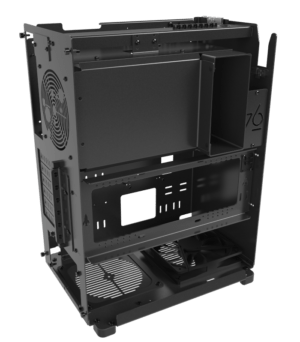
“Nebula features separate CPU and GPU cooling systems. The CPU is cooled with a dedicated intake vent and duct with a series of fans pulling cool air across the CPU cooler and pushing hot air out of the exhaust. Vents at the end of the CPU duct allow GPU heat to radiate into the hot air portion of the duct for additional GPU exhaust. GPUs are cooled
with a large 140MM bottom intake fan and an optional 120MM side intake fan.”
Also, for those of us who aren’t experts when it comes to stuff like air flow dynamics, Nebula takes the guesswork out of cooling the computer you’re building by including a guide on recommended fan placement. Also, for gamers and other power users who might need some extra cooling, the two larger Nebula cases come with support for liquid cooling.
Interested? Here Are Some Specs
Nebula cases are constructed using 1.6mm thick powder-coated aluminum with a compact design. How compact? System76 points out that Nebula19, the smallest of the cases, “takes up about the same amount of desk, floor, or shelf space as a single sheet of paper.”
nebula19: 12.87″ × 8.15″ × 11.46″ (327 × 207 × 291mm), 19 Liters
nebula36: 17.18″ × 9.96″ × 12.56″ (436 × 253 × 319mm), 36 Liters
nebula49: 18.15′′ × 10.28′′ × 16.06′′ (461 × 261 × 408mm), 49 Liters
These form factors support the following motherboard classes:
nebula19: Mini ITX
nebula36: Mini ITX, MicroATX, and ATX
nebula49: ATX and EATX
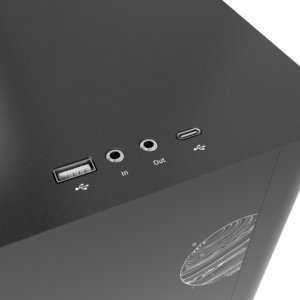
System76 says the interior of these cases were specifically designed for easy access to all components, with a removable lid that provides room to tinker from multiple angles. Tool-optional thumb screws hold the lid and GPU brace in place. Also, the 2.5” storage drives are hot-swappable when users configure Nebula with the SATA backplane upgrade and motherboard with hot-swap support.
Despite their compact size, nebula36 and nebula49 have room for some of the largest, most powerful GPUs on the market.
The maximum GPU lengths for each of the cases:
nebula19: 272.3mm
nebula36: 312mm
nebula49: 390.5mm
The Nebula cases are available for order now on the System76 website. Prices for the Nebula19 starts at $199, with pricing for the Nebula36 and Nebula49 starting at $269 and $329 respectively.
Christine Hall has been a journalist since 1971. In 2001, she began writing a weekly consumer computer column and started covering Linux and FOSS in 2002 after making the switch to GNU/Linux. Follow her on Twitter: @BrideOfLinux



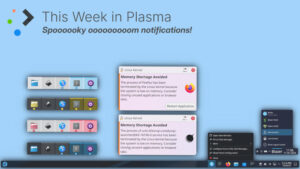
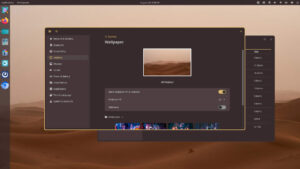




These cases look really slick! I like seeing custom cases that are designed for “people who are really into computers” rather than “gamers who want lots of bling”. Sometimes having a great-looking desktop that just looks like a nice computer is better than having LED’s everywhere and racing stripes and whatever the gamers are into these days.